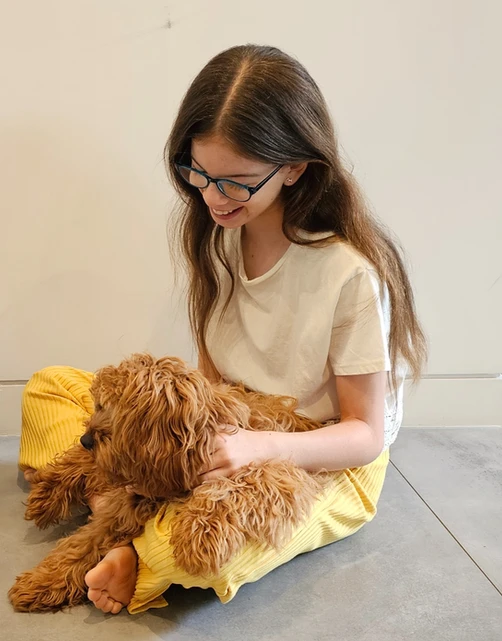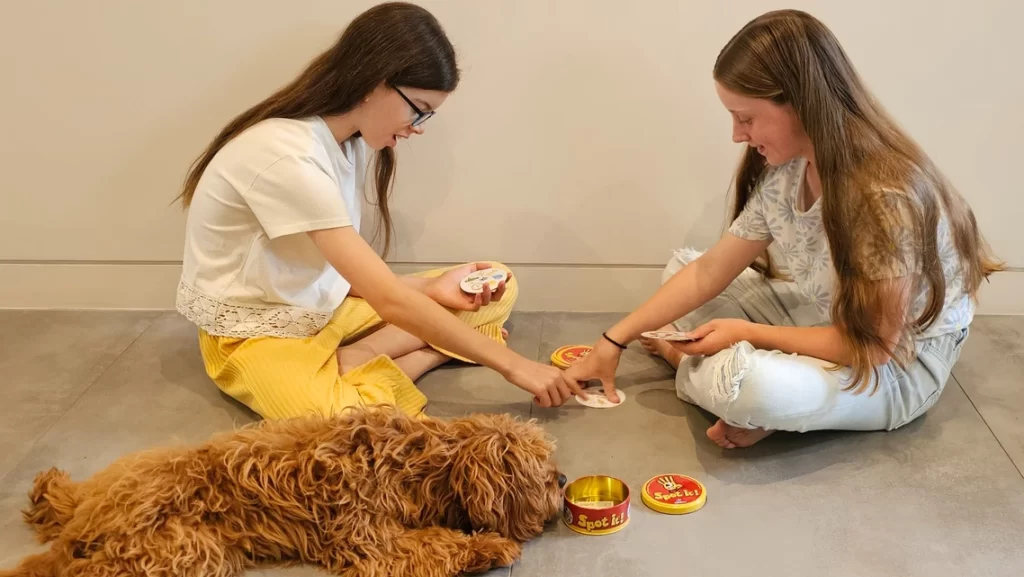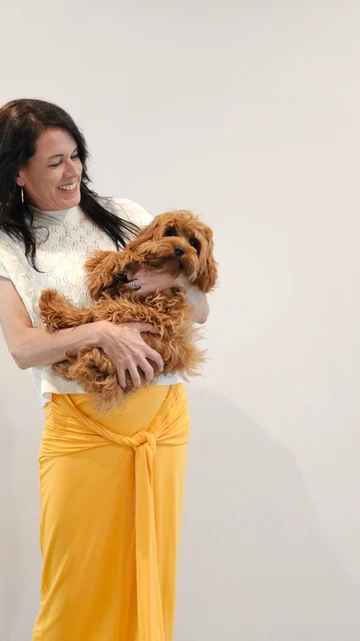YOUR JOURNEY STARTS HERE...
We provide assessment and treatment of Selective Mutism and extreme shyness in preschoolers, school-aged children, teenagers, and adults with Selective Mutism throughout Australia. Families in remote and rural areas and nearby can access our service through our ‘Outreach’ program.
Services are also available at the clinic for other childhood emotional and behavioural problems. Adults with Selective Mutism or Social Anxiety Disorder (‘Social Phobia’) can receive treatment from the Clinical Psychologists at our clinic who provide treatment for adults.
Our Psychologists and Speech Pathologists provide face-to-face and video consultations.
GET READY FOR CHANGE
GET READY FOR CHANGE

Comprehensive
Assessment

Evidence-based
Strategies

Integrated School
Program

Online Treatment
for anywhere in
Australia

Abundance of
Resources

Licensed
PractiTIoners
01
Assessment
Your family will be seen by one of our Clinical Psychologists or Speech Pathologists who have extensive training and experience in treating Selective Mutism. All therapists at the clinic use the same strategies developed by the Director and Clinical Psychologist, Dr Elizabeth Woodcock. Families who attend the clinic first undergo a comprehensive assessment. A battery of questionnaires and forms helps to support this assessment, as well as an initial one-hour video consultation with the school. The initial session is held with the parent(s) alone without your child so that you can talk freely about your child’s communication difficulties. This can be face-to-face or over Zoom. Assessment of the child starts with a fun, relaxed game with no initial expectations to talk.
02
CLINIC
The program involves the child and parent, using specific evidence-based strategies to help the child start to communicate verbally with the therapist (using the ‘gold standard’ treatment for Selective Mutism used worldwide called “Sliding In”). Once the child can talk with the therapist without the parent present, the child is helped to communicate to other adults in the vicinity of the office. The clinic also holds small group face-to-face and Zoom sessions to help children communicate with peers. In the clinic sessions the child is also taught valuable skills in recognising emotions and managing anxiety. These skills help the child learn to face their fears of communicating in other situations such as school and in the community. Parents are taught ways to support their child emotionally at home and manage any behavioural issues. We frequently help children and families with other challenges that occur alongside Selective Mutism such as other anxieties and phobias, noncompliance and tantrums, sleeping issues, school refusal, separation anxiety, self-esteem issues, emotion regulation, academic/performance anxiety, toileting and eating issues, social skills difficulties that arise from Autism Spectrum Disorder (ASD), and speech and language difficulties. Each of these can be assessed and targeted as part of the overall treatment program. The clinic program is extremely fun for the child and involves earning rewards for ‘brave communication’. Rewards won’t last forever but are an integral part of the program that keeps the child wanting to come back and striving to face their biggest fear – of communication!
03
COMMUNITY
Children with Selective Mutism generally have difficulties communicating with people in the community, including relatives, family friends, at appointments, cafes and shops, extracurricular activities, tutoring, after-school care, and music lessons. The parent and child are taught strategies to build the child’s communication in these situations which can include role plays and ‘in vivo’ practice at nearby shops and play centres. We bring other clinicians and reception staff into the sessions (even if they are Zoom sessions) to help the child generalise their communication to others. Parents are supported to learn strategies that they can use to help their child communicate in these situations and are helped to understand the role their own anxiety plays when supporting their child to speak up. The therapist can liaise with important people in the community to provide education about Selective Mutism and specific strategies that will help the child to build their communication.
04
School
Children with Selective Mutism usually find it hardest to speak at school. If the Selective Mutism is treated in the clinic alone, it will generally not change their communication ability at school. The Selective Mutism Clinic therefore implements an intensive school or preschool program, providing the classroom teacher and other relevant school personnel with two video consultations each school term to support them to implement accommodations at school that will build the child’s communication. The classroom teacher (or a ‘key worker’ for high school) must be present for these consultations as the main strategies discussed are intended for the classroom teacher to implement in the classroom during their daily teaching as well as in individual sessions with the child and parent. The child is helped to build their communication with the classroom teacher, with each peer in the class, in small groups, and finally in whole-class situations. Many children reach the stage of being able to communicate in front of assemblies. If your child is home-schooled, we can also devise a tailored program for them.
05
OTHER SUPPORT
As part of a comprehensive treatment program we provide support to other agencies or workers who are part of the child’s support team. These can include other Speech Pathologists, Psychologists, Occupational Therapists, Support Workers, Tutors, Coaches, and after-school care centres. This support can be as little or as much as is required to help the child build their communication with these workers, and may involve written handouts about Selective Mutism and strategies which will before the child, a Zoom supervision session to provide more in-depth discussion of strategies, or occasionally an off-site visit to provide specific coaching of strategies in the environment where the other worker sees the child.
SESSION FrequencY
- Initially children are seen every 1-2 weeks to get the program underway
- Sessions then become less frequent (e.g., every 3-6 weeks depending upon child’s progress and families’ confidence in applying strategies between sessions)
FEES
- Initial 60-minute assessment costs $290
- Subsequent 50-minute sessions and school consultations cost $260
- Medicare rebates can also be obtained (see your GP/Paediatrician)
- NDIS, Medicare and private health funds may also provide rebates.
Meet ObI, our
Therapy
Doggo




Selective Mutism
WEBINARS
WEBINARS
Clinic Director & Clinical Psychologist Dr Elizabeth Woodcock runs a series of webinars about Selective Mutism. In our experience, families who start treatment having already watched one of our webinars make faster progress with the strategies that are taught as they have a thorough understanding of the techniques prior to starting treatment.
See details of our bestselling webinar, ‘How to Help Your Child with Selective Mutism’ here. In addition, it is also highly beneficial for your child’s progress if you can help the classroom teacher to understand the benefits of watching the 3-hour webinar specically targetted for schools here. A high school version of the webinar is here.

